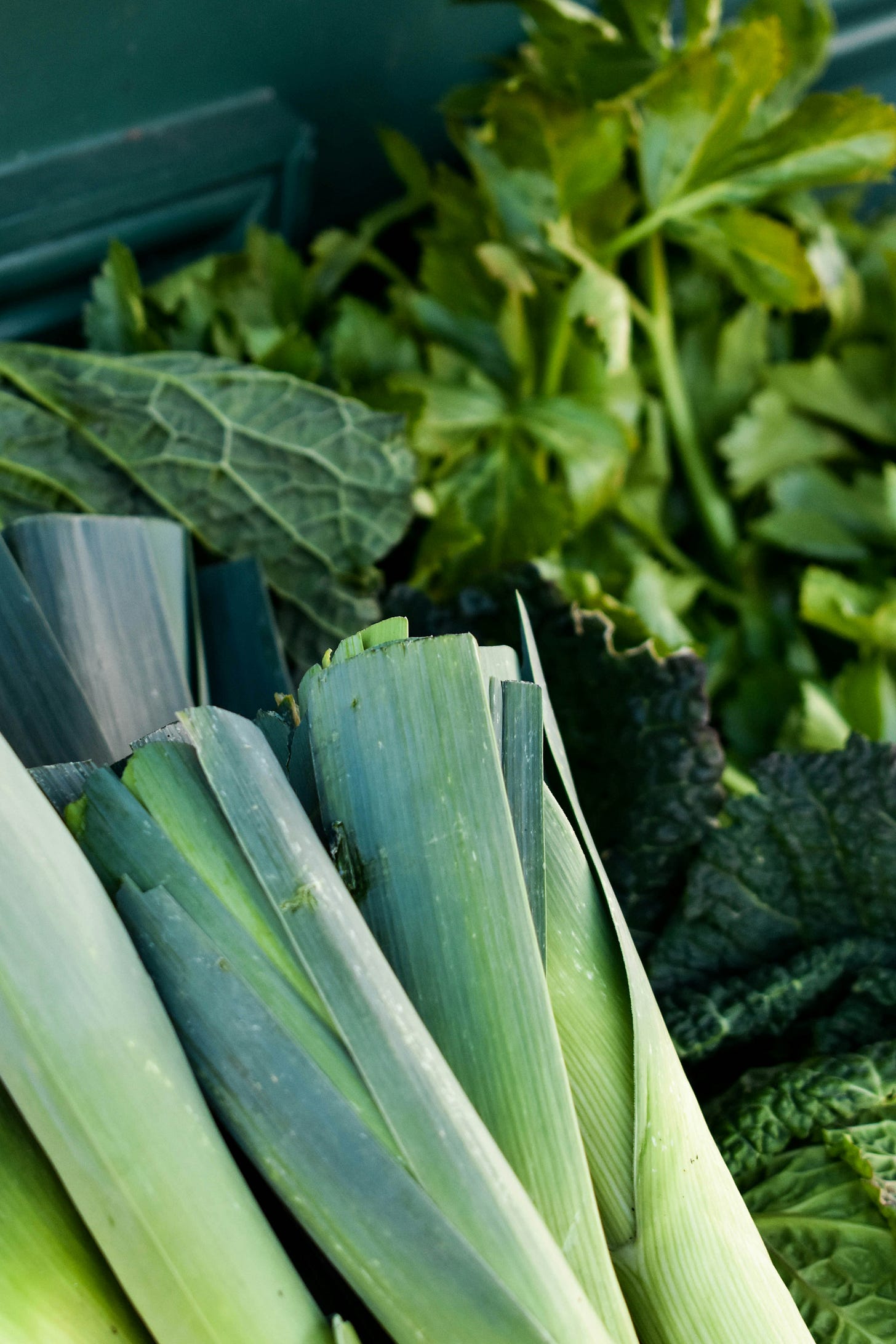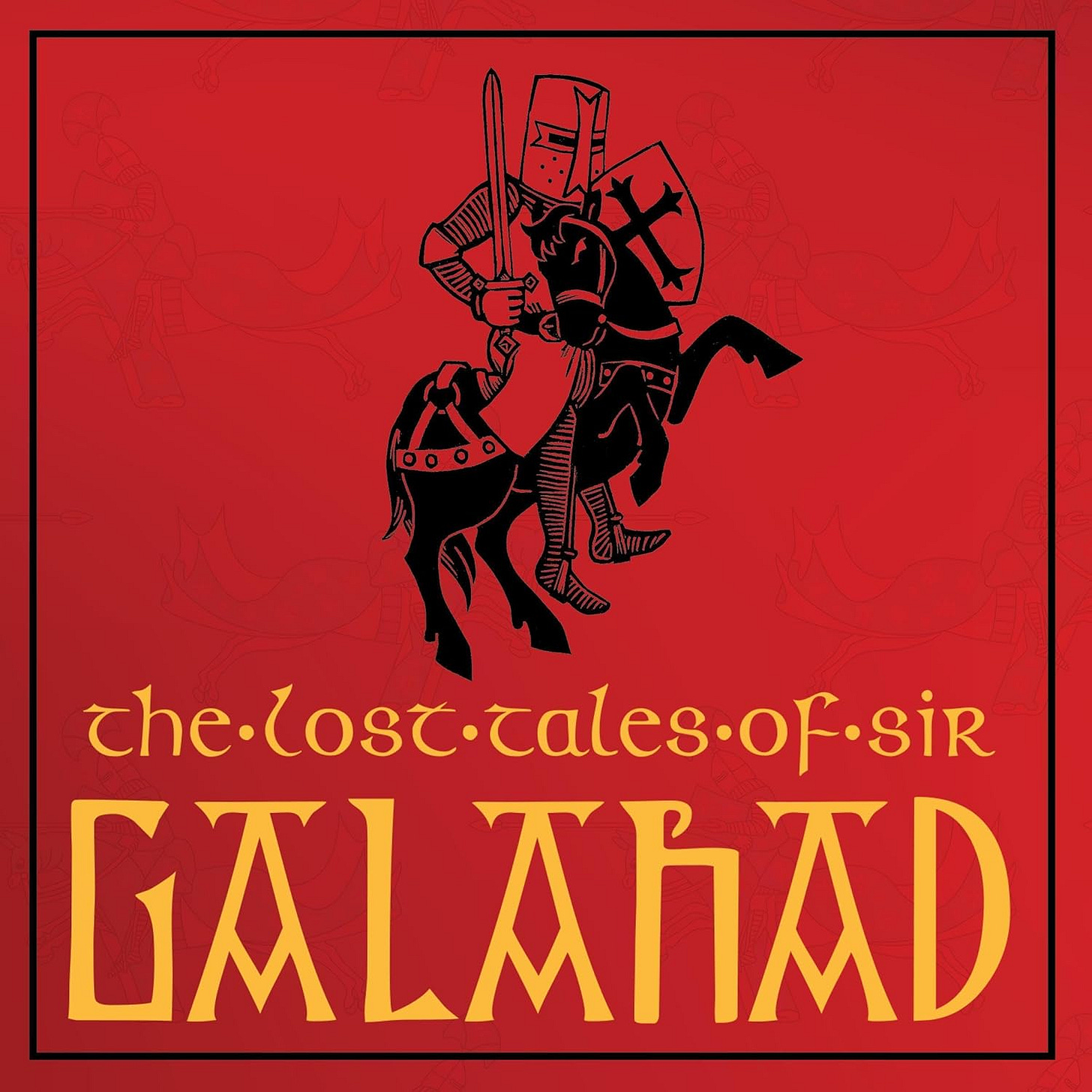This tale is part of an ongoing series of The Lost Lost Tales of Sir Galahad, not to be confused with The Lost Tales of Sir Galahad that were discovered in the bust of St. Plagiarus. Read the full history of the discovery of these tales here.

Galahad’s eyes flickered open as a thrush perched on a branch above him chirped forth in loud song. The knight blinked his eyes at the growing glow in the east. He sat up and stretched his back, stiff from a night of slumbering amid the roots of a spreading oak. The mossy turf under the tree had provided some comfort, but his stomach gurgled, alerting him to the need for other comfort than the great oak was able to provide.
He stood and spied his mount browsing among the clover beyond the tree, its fierce black coat standing in stark contrast to the gray gloom of the fleeing shadows behind.
“Ah,” smiled Galahad, “the forest provideth simple yet nourishing sustenance for a rude beast like thyself!”
The horse stretched out his neck, flattened his ears, and snorted.
“Ha ha!” laughed Galahad as the sun’s rays fought back the lingering chill of night. “Didst thou take offense to mine remark about thine rudeness?”
He approached the horse and stroked its neck as it continued to chew clover. “Thou mayest find satisfaction with such clover day after day, yet thy master yearns for the toothsome bread and meats of his cherished childhood, prepared by the hands of the kind sisters in the convent.”
As the youthful knight often did when beginning an earnest soliloquy, he sighed, raised his eyes, and looked into the distance. The patient warhorse, who had endured many a speech from his master during their journeys, swished his tail and buried his snout in the clover.
“Ah, doth thy master long for heartier fare beyond that of the leeks that he hath foraged continually!” He sighed again. “Alas! Yet how unseemly that a great knight, in the midst of a mighty quest, shouldst labor in such mean tasks as more befit a wench or a fair maiden! But whence shouldst he ever find such fare ‘neath the boughs of this great wood, and what fair hands mightest prepare it for him?”
He gestured to the wild leeks growing at his feet. “Tis true, that though the faithful leek mayest be prepared in divers fashions to momentarily quench the appetite, I grow weary of fire-roasted leeks, and their near cousin grilled leeks. Verily, poached leeks hath their merits, as doth boiled leeks. Dried leeks spoileth not over long journeys and crunch with a delicate crispness between mine teeth. Leeks sauteed with garlic doth gain a still more pungent air, and the crisp freshness of leek tartare and leek salad art delightful on a warm summer’s day…though the freshness doth not extend to their aftereffects on the breath.” He held a gauntleted hand before his mouth, exhaled, and winced at the stinging in his nose that the return draft produced.
He scrubbed his tongue on the roof of his mouth and, with stooped shoulders, stomped his way down the grassy bank to drink and gargle with fresh water from the bright, cold stream. He swished and spit, but he still found the same aftertaste that had overtaken him in recent days. He lifted a hand to wipe his mouth and sniffed hesitantly beneath his raised arm. He winced yet again to find that the leeks did not merely stake claim to his mouth, but also every pore of his skin.
He flailed at the air around him with his hand, hoping to stir up some freshness and banish the sourness, when his nose caught an aroma that was decidedly unrelated to leeks and their prodigious consumption. It was the smell of woodsmoke! He raised his nose and sniffed again. Not just the smell of a campfire, but of roasting meats!
“Hark! Canst that be a smell from the people of this Wild Forest, preparing to break their nightly fast with the coming of the morn?”
The warhorse raised its head, languidly crushing clover between its mighty molars.
Galahad, animated by a scent that was something other than raw, cooked, or digested leeks, leapt onto the back of his charger and spurred the beast forward into the forest, following a path marked only by the knight’s sense of the wafting smoke. He rode forward, standing in his stirrups with his neck stretched out and his head raised, his nostrils flaring as he searched for the source of the delicious smells.
Maneuvering his charger through trees and thickets, he eventually broke through the tangled undergrowth into a clearing. He immediately spied the source of the smell that had lured him there: between a pair of wagons, he saw a smoking fire with meat skewered on spits dangling above the coals, fat dripping and sizzling. Galahad wheeled his horse about and pulled up on the reins as a group of people leapt up from around the fire and sought shelter behind the wagons or in the tangled undergrowth beyond.
The quiet of the clearing was broken by a rough voice that called to Galahad from behind one of the wagons. “Halt, kind sir! We are but poor, lost circus performers, wandering far in a strange land, and we have neither gold nor silver to satisfy a well-armed highwayman like yerself! Please, sire, we beg ye, leave us to our weary wandering and do not molest us!”
Galahad let out a hearty laugh. “Simple knave, fear not and show thyself! Well dost thou recognize mine arms and mine right to be called ‘sire,’ yet thine eye hath deceived thee if thou thinkest me some rough brigand! Dost thou know not mine office by crest and shield? Thou speakest with none other than Galahad, Knight of the Round Table and Occupier of the Siege Perilous!”
“Uh?” grunted the voice. “We know not such titles and heraldry, so pardon our confusion. We meant ye no offense. Do ye swear that ye mean us no harm?”
Galahad placed his hand over his heart and sat up straight in his saddle. “Verily do I swear that I mean thee and thine kindred no harm, but only seek to sup with thee as thou breakest thine fast.”
At this declaration a short, bearded fellow wearing a green tunic over bright saffron leggings stepped forth from behind one of the wagons. His broad shoulders bulged from the sleeveless tunic, and he looked nearly as wide as he was tall. His bare arms were as thick as the branches of the oaks that circled the clearing, while his rheumy eyes directed their unfocused gaze in opposite directions.
He was soon joined in the open by a tall, thin motley fool decked in black and red harlequin patterns, complete with tinkling bells on his cap. A rosy-cheeked woman whose girth rivaled the oak trunk she hid behind emerged next and offered Galahad an awkward curtsy, followed by a tangle of grimy children dressed in tattered rags.
“Well,” said the bearded man, simultaneously looking to either side of the knight, “this be us. Come, come, if ye mean us no harm. Take leave of yer horse and join us for a simple meal.” He turned toward the woman and snapped his fingers. “Be quick about it, Mother! We’ve fair gentlefolk as our guest for the morning meal! We haven’t much dainty fare for the likes o’him, but we’ve hearty enough food to share!” For a moment it seemed to Galahad that the man winked his right eye in the general direction of the woman, but then he rubbed it and flicked away a gnat that had fluttered heedlessly into the watery trap.
“Oy!” shouted the woman, raising a wooden spoon over her head and shaking it at the man. “We barely got enough for ourselves--how ye gonna offer it to the likes o’him? And snap yer fingers at me again like ‘at and ye’ll be feeling me spoon crack betwixt yer crooked old eyes!”
“Ach, calm yourself, good woman,” chimed in the fool as he broke into a jaunty dance. “Our mighty friend Herakles meant ye no harm! He just thinks that this fair knight should have the honor o’tasting yer delightful food this fine morning!” Galahad thought he noticed the fool wink his eye at the woman, but then the gaunt fellow coughed and rubbed his eyes as he fanned away drifting smoke from the fire.
“Ah, aye, aye,” cried the woman, whose scowl softened into a smile as she nodded her head. “Come, come, sir knight! We haven’t much, but we’re willing to share with weary travelers liken yerself.” She waved to the hungry knight as she bustled toward the fire. Galahad leapt from his horse and fell into line behind the pushing and shoving children who trailed behind the woman. Herakles and the fool bowed and motioned him forward.
“Back, back, ye savage brats!” the woman shouted as she reached the fire. She flailed at the children with the spoon, and they scattered to shelter under the nearby wagons, peering out with sparkling eyes like wild creatures from caverns and holes.
Galahad plopped down next to the fire as the woman began piling food onto a wooden plate with cracked edges. She sloshed something out of a cauldron onto the plate, and then topped off the stack with a crust of moldy bread. She turned and presented the plate to Galahad with a slight bow. He took the plate in trembling hands as she jabbed a plump finger toward each item to identify it.
“Roast rat skewers here, cream o’viper there, and barley bread! Scrape off the growth on the bread or not--it don’t make no difference to me.” She shrugged and turned back to stir the cauldron hanging over the fire.
Galahad gulped. “Sayest thou truly that this is the flesh of…rats and vipers?”
“Aye, aye, tis all we’ve had to eat since we entered this forsaken forest.”
“Hurrkk,” said Galahad as he choked back a gag. “And wouldst this fair stew be eels boiled in broth?” He whispered to himself, “Please be eels! Please be eels!”
“Nay,” said the woman, shaking her head and frowning. “That’s a broo o’leeks.” She turned and looked at the plate closely. “There may yet be a bite o’wildcat mixed in the gravy as well, though it’s been near a week since we kilt it. Mind ye taste it and make sure it hadn’t yet turnt.”
“Thank you--hurrkkk,” spluttered Galahad, again resisting his stomach’s ever more insistent urges to turn itself inside out.
“Well, come and get what ye want!” shouted the woman as Herakles, the fool, and the children swarmed and began grabbing at food. They plopped down around Galahad and tore at the strange meats, slurping the broth in great gulps.
“What’s a-matter, fair knight? Why do ye weep?” said Herakles.
“Tis merely the pungent aroma of these tasty leeks that hath caused mine eyes to water!” he said, nibbling at the limp onions swimming in the greasy gravy on the plate. “Thine generosity hast been more than this poor wandering knight could ask, and such a small portion hath rendered mine hunger mute. Alas, now I must take leave.” He set the plate down before him and leapt out of the way as the children descended upon it. “Thy kindness shall never be forgotten!” he called over his shoulder as he rushed back to his horse, mounted it, and dashed away into the forest. “Farewell, fine friends!” he shouted over his shoulder. “Begone, foul fiends!” he whispered to himself.
“Well, what got into him?” laughed Herakles, wiping the broth from his beard with his tunic. “Mother, have ye anymore of those skewered squirrels?”
“Nay,” she laughed, “but we’ve plenty more of the trout, and plenty o’gravy! There’s still some bites o’rabbit swimming in it. Ah, and I almost forgot the fresh bread!”
And so Galahad, through this and other trials, learned not to think himself above menial tasks like food preparation. In time, he proved himself worthy of the titles prophesied about him, yet not without much penitent suffering—and burned or undercooked victuals along the way.
Dave Nelson is a writer who grew up in Alabama but currently lives in Mississippi. His fiction has appeared in CC&D, The Dead Mule School of Southern Literature, and The Habit Portfolio.
Did you enjoy this tale? Find the original Lost Tales of Sir Galahad here!






rats, vipers and barley broth! It would behoove Galahad to remember that beggars can't be choosers. ;)
Great fun David! I enjoyed it.